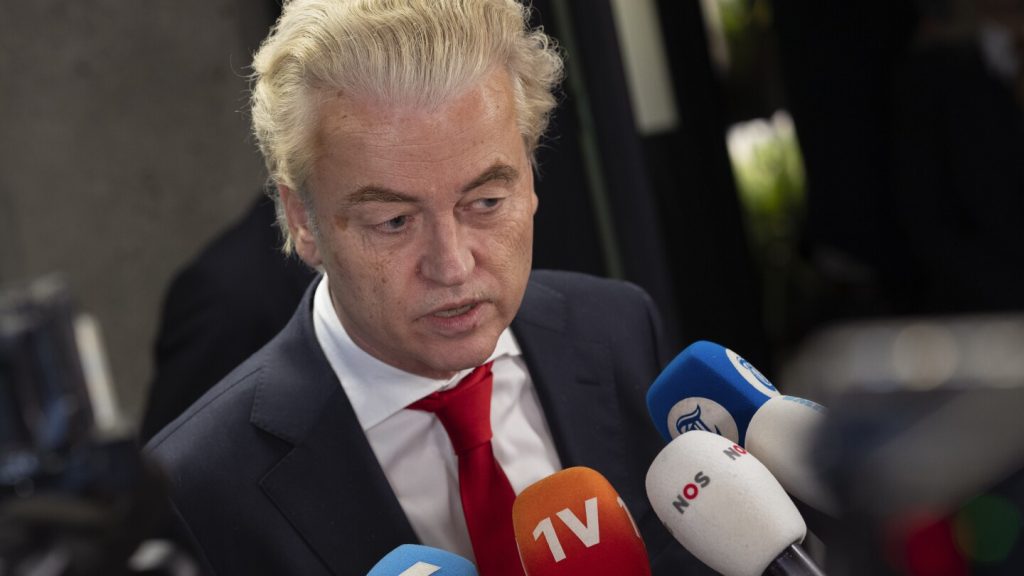The Dutch coalition dominated by the far right is facing challenges in finding a prime minister, leading to warnings that the Netherlands may be without a fully functional government for months. Geert Wilders, the anti-Islam lawmaker who won the November election, stated that it may take until after the summer to form a government. However, he has made it clear that he will not become prime minister as part of the coalition deal. The initial candidate for prime minister that Wilders had in mind withdrew due to allegations of medical patent fraud, further complicating the search.
Wilders, a divisive figure in Dutch politics for the past two decades, played a key role in forming the coalition with outgoing Prime Minister Mark Rutte’s center-right People’s Party for Freedom and Democracy, the populist Farmer Citizen Movement, and the new centrist New Social Contract party. The coalition’s plans to enforce a strict asylum policy have shifted the Netherlands far to the right and challenged the country’s traditional image as an open, tolerant society. This has raised concerns about the next government’s climate commitments, which are aligned with European Union policies.
The inclusion of the Farmer Citizen Movement in the coalition has also led to considerations for concessions to farmers, who have previously staged protests by blocking roads with tractors. The potential clashes over asylum and climate policies with the EU headquarters in Brussels could impact the Netherlands’ standing as a key member of the 27-nation bloc. Rutte, who remains in office in a caretaker capacity, is considered a strong candidate to become the next NATO secretary general. However, his party risks being expelled from the liberal Renew bloc in the European Parliament due to its alliance with Wilders, as the Renew bloc has stated that it will not accept coalitions with the extreme right.
Overall, the formation of the Dutch far-right coalition has been met with uncertainty and challenges, particularly in the search for a prime minister and the potential implications for the country’s policies on asylum and climate. The prolonged process may leave the Netherlands without a functional government for an extended period, with speculation that a government team, including the prime minister, may not be finalized until after the summer or even as late as September. Wilders’ refusal to become prime minister adds to the complexity of the situation, as the coalition navigates its way through internal and external pressures to establish a cohesive government. The outcome of these negotiations will have significant implications for the future direction of Dutch politics and its relationship with the European Union.


